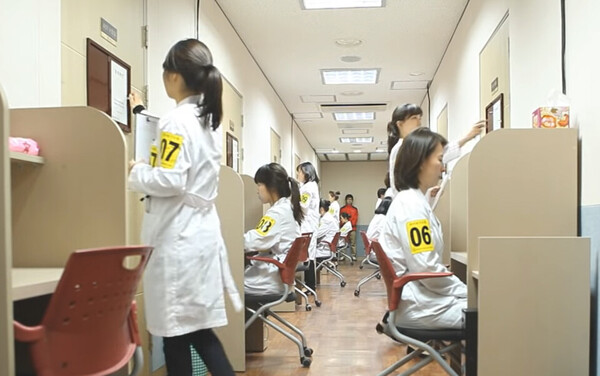
A lawmaker has reemphasized the need for the government to strengthen the management and supervision of foreign medical schools that grant qualifications to take the state medical license examination.
Compared to other countries, including the U.S., U.K., Australia, and Germany, Korea has stricter standards for granting medical licenses to graduates of foreign medical schools.
Among major countries, only Korea and Japan require the graduates of government-recognized foreign medical schools to take a separate preliminary examination to qualify for the state medical examination. Since 2005, Korea has divided the preliminary exam into written and skill tests.
Only about one-third of foreign medical school graduates get licenses to practice medicine in Korea because they must pass the preliminary and main exams, Korea Medical Licensing Exam (KMLE).
According to data submitted by the Ministry of Health and Welfare to Rep. Shin Hyun-young of the National Assembly's Health and Welfare Committee, the percentage of graduates of foreign medical schools recognized by the ministry who passed the preliminary examination for domestic doctors from 2005 to 2023 was 55.4 percent. Only 33.5 percent passed the preliminary examination and main exam to get a medical license.
That compared with the passing rate for Korean medical school graduates, which amounted to 95.8 percent in 2018, 95.6 percent in 2019, 97.0 percent in 2020, 86.3 percent in 2021, 97.6 percent in the first half of 2022, and 95.9 percent in the second half of 2022.
The problem is that foreign medical schools have no follow-up management and supervision system once they are accredited, even though obtaining a medical license is difficult. Korean medical schools are accredited every four to six years through the Korea Institute of Medical Education and Evaluation (KIMEE).
In June, 159 medical schools in 38 countries were approved for the Korean medical licensing examination. The Ministry of Health and Welfare examines whether to recognize foreign medical schools by forming an accreditation review committee led by the Korea Health Personnel Licensing Examination Institute (KHPLEI), according to the “Standards for Accrediting Foreign Schools for Eligibility to Take the Korean Medical Licensing Examination. Of the 46 applications for accreditation received from 2018 to 2023, 37 were approved, eight were rejected, and one was pending.
The government can revoke its accreditation if foreign schools are deemed not to meet the standards due to changes in disciplines, curriculum, and academic management. However, no foreign medical schools have been revoked so far.
"While domestic medical schools are inspected every few years, foreign medical schools are not inspected after the initial accreditation review," Rep. Shin noted. “We need to improve the system to manage and supervise foreign medical schools regularly."
Experts also noted that the government must reform the accreditation system for foreign medical schools.
KHPLEI and KIMEE suggested limiting the validity period of foreign medical school accreditation to six years after the initial accreditation and conducting a comprehensive review for new accreditation applications afterward. They also suggested that accreditation reviews should be divided into three areas: the national licensing system, the foreign school, and the individual applicant, with professional organizations in charge of each area.
Last year, the two agencies also submitted a report titled "Study on Improving the Recognition System for Foreign Medical Practitioners' Qualifications to Take the National Medical Examination" to the health and welfare ministry.
The ministry said amendments to the Medical Service Act are needed to revoke accredited schools and establish grounds for the validity of accreditation. It was considering ways to improve the accreditation review system for foreign schools, including strengthening the review of individual curriculum completion.
The medical community also called for improving the system for recognizing foreign medical schools.
"The low percentage of graduates of foreign medical schools acquiring medical licenses is due to granting the right to take state medical exams to unqualified people,” the Future Medical Forum said. "The government should improve the system of accreditation of foreign medical schools, which is inadequate," it said.
The forum said there is a problem with the current foreign medical school accreditation review system, which requires no follow-up checks after accrediting them, calling for the system’s "drastic improvement."

